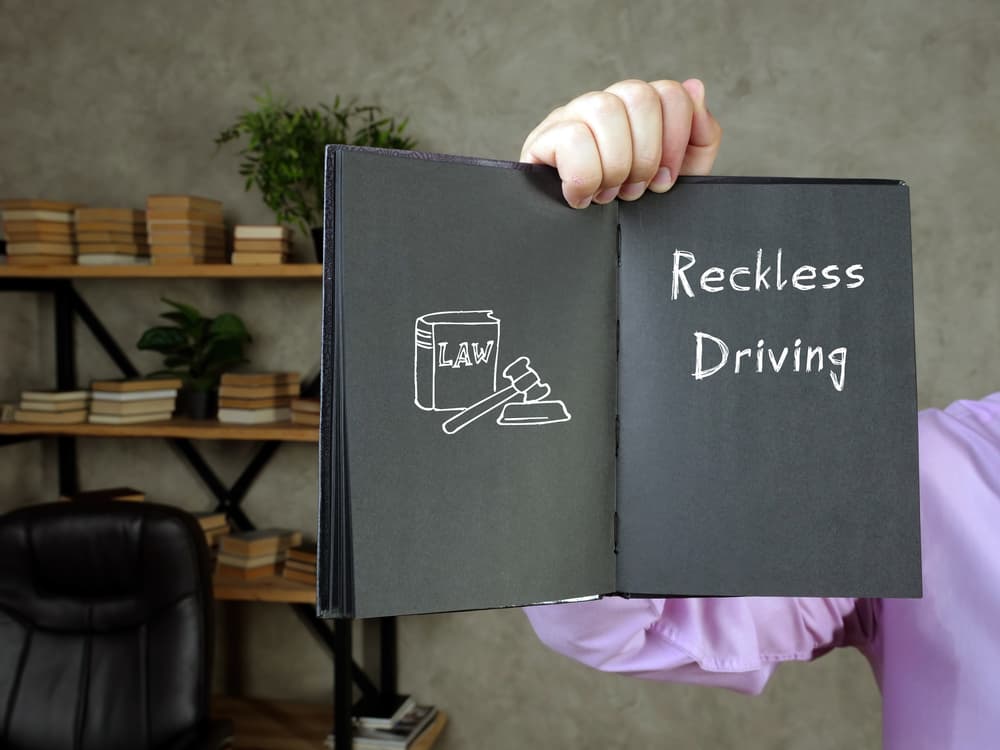If you've suffered an injury in an accident, you might wonder about settlement offers and how long you have to accept one. This is a common question many people have after experiencing a personal injury, as they do not want to miss the chance to receive a settlement.
While the process can seem overwhelming, understanding your rights and options is key. While there is no set time to accept a settlement offer from insurance companies, the timing of your acceptance can affect your future. Most importantly, you should never accept a settlement offer without first consulting a personal injury attorney.
A personal injury lawyer can be your greatest ally in seeking the compensation you deserve.
Schedule a Free Initial Consultation Today!
The Basics of Settlement Offers

When you suffered an injury due to someone else's negligence, their insurance company may offer you a settlement. This is a sum of money meant to cover your medical bills, lost income, and other damages related to the accident. It's important to remember that the first offer is rarely the best one.
Insurance companies are businesses whose goal is to pay out as little as possible. They might try to rush you into accepting an offer before you fully understand the extent of your injuries or long-term consequences. This is why consulting a personal injury lawyer before agreeing to any settlement is important.
A personal injury lawyer can review the offer and determine if it's fair based on your situation. An attorney can also negotiate with the insurance company on your behalf to try and secure a better settlement.
Time Limits on Settlement Offers
When accepting a settlement offer, there's no one-size-fits-all answer to how long you have. The timeframe can vary depending on several factors:
- The terms of the offer itself: Sometimes, an insurance company will put a deadline on their offer. They might say you have 30 days or 60 days to accept. However, these deadlines are often negotiable, especially with the help of a personal injury lawyer.
- The statute of limitations: Every state has a statute of limitations for personal injury cases. This is the legal time limit you have to file a lawsuit. While this doesn't directly affect how long you have to accept a settlement offer, it does impact your overall timeline for resolving your case.
- Your recovery timeline: It's generally not a good idea to accept a settlement until you have a clear understanding of your injuries and long-term prognosis. This might mean waiting until you've reached maximum medical improvement (MMI), which is the point where your condition has stabilized and isn't expected to improve significantly with further treatment.
- Ongoing negotiations: If you're actively negotiating with the insurance company, either on your own or through a personal injury lawyer, the timeline for accepting an offer can be extended.
A personal injury lawyer can help you understand these timelines and ensure you don't miss any deadlines. They can also advise you when it might be best to accept an offer versus continuing negotiations or potentially filing a lawsuit.
Here's a rewritten version of the content without lists, using only headings and paragraph sections:
When to Consider Accepting a Settlement Offer
While it's often best to negotiate for a better offer, there are times when accepting a settlement might be the right choice. If the settlement offer covers all your medical expenses and lost income and provides reasonable compensation for pain and suffering, it might be worth accepting.
Once you've reached maximum medical improvement and clearly understand any future medical needs, you're in a better position to evaluate settlement offers. If the offer is near the maximum amount available under the at-fault party's insurance policy, further negotiation might not yield much more compensation.
Sometimes, the certainty of a settlement is preferable to the uncertainty of a trial. While it's generally not advisable to accept a low offer out of financial desperation, sometimes immediate financial needs might outweigh the potential for a larger future settlement. A personal injury lawyer can weigh these factors and decide whether accepting an offer is in your best interest.
Potential Consequences of Accepting a Settlement Too Quickly
While it might be tempting to accept the first offer that comes your way, doing so can have serious consequences. If you accept before fully understanding the extent of your injuries and future medical needs, you might not receive enough money to cover all your expenses. Once you accept a settlement, you typically can't go back and ask for more money if your condition worsens or you discover additional injuries.
Early settlement offers often focus on tangible costs like medical bills and lost income, potentially overlooking compensation for pain and suffering or emotional distress. Some injuries can have lifelong consequences that aren't immediately apparent. Accepting too quickly might mean you're not compensated for these long-term effects.
Once you accept an offer, you lose the ability to negotiate for a higher amount. A personal injury lawyer can avoid these pitfalls by ensuring you have a full understanding of your injuries and their potential long-term impacts before accepting any settlement offer.
When Litigation Might Be Necessary
While most personal injury cases settle out of court, sometimes filing a lawsuit becomes necessary. This might happen if the insurance company refuses to make a fair offer, negotiations have reached a standstill, or the statute of limitations is approaching.
It's important to understand that filing a lawsuit doesn't mean your case will definitely go to trial. Many cases settle during the litigation process before reaching the courtroom.
The decision to file a lawsuit is a significant one, and it's not something you should do without careful consideration and legal advice. A personal injury lawyer understands the pros and cons of litigation in your specific case and guides you through the process if it becomes necessary.
The Importance of Clear Communication
Clear communication is key throughout the settlement negotiation process. This includes communication between you and your personal injury lawyer, your lawyer and the insurance company, and you and your medical providers.
Ensure you keep your lawyer informed about your medical treatment, any changes in your condition, and any communications you receive from the insurance company. Be honest and thorough in describing your injuries and how they've impacted your life.
Your personal injury lawyer will handle most of the communication with the insurance company, protecting you from saying anything that can harm your claim. They'll keep you updated on the progress of negotiations and any settlement offers received. Clear communication can help ensure that your lawyer has all the information needed to effectively negotiate on your behalf and that you fully understand the status of your case at each stage.
Documenting Your Damages
To support your claim and justify a fair settlement, it's important to thoroughly document your damages. This includes medical bills and records, receipts for out-of-pocket expenses related to your injury, pay stubs or other proof of lost income, photos of your injuries and any property damage, and a journal detailing your pain levels and how the injury affects your daily life.
A personal injury lawyer understands what documentation is most important for your case and how to obtain it. They can also work with expert witnesses if needed to strengthen your claim. Proper documentation can significantly strengthen your negotiating position and help pursue fair compensation for all your damages.
Understanding Different Types of Damages
When evaluating settlement offers, it's important to understand the types of damages you may be entitled to.
Economic damages are quantifiable financial losses, including medical bills, lost income, and property damage. Non-economic damages are less tangible losses, such as pain and suffering, emotional distress, and loss of enjoyment of life. Future damages include projected future medical expenses and lost earning capacity due to your injuries.
Insurance companies often focus on economic damages in their initial offers, potentially undervaluing non-economic and future damages. A personal injury lawyer can help ensure all damages are properly accounted for in settlement negotiations.
The Role of Evidence in Settlement Negotiations
Strong evidence can significantly strengthen your position in settlement negotiations. This might include police reports, witness statements, expert testimony, surveillance footage, and accident reconstruction reports.
A personal injury lawyer can help gather and present this evidence effectively. They know what evidence is most compelling and how to use it to support your claim for fair compensation. The strength of your evidence can often motivate an insurance company to make a better settlement offer, as it increases the risk they face if the case goes to trial.
Understanding Insurance Company Tactics
Insurance companies use various tactics to minimize the amount they pay in claims. Some common strategies include offering a quick, low settlement before you fully understand your injuries, disputing the severity of your injuries or arguing they were pre-existing, arguing that you were partially at fault for the accident, and delaying the process, hoping you'll give up or accept a lower offer out of frustration.
A personal injury lawyer has experience dealing with these tactics and can counter them effectively. They can protect your rights and ensure you're treated fairly throughout the negotiation process.
The Importance of Considering Long-Term Consequences
When evaluating settlement offers, it's wise to consider the long-term consequences of your injuries. This might include ongoing medical treatment or therapy, potential future surgeries or procedures, long-term pain management needs, impact on your ability to work or advance in your career, and effects on your personal relationships and quality of life. These factors can be easily overlooked, especially when facing immediate financial pressures.
However, accepting a settlement that doesn't account for these long-term impacts can leave you struggling to cover expenses in the future. A personal injury lawyer will consider these long-term factors and ensure they're properly accounted for in settlement negotiations.
The Settlement Agreement: What to Look For
If you accept a settlement offer, you'll typically need to sign a settlement agreement. This is a legally binding document, and it's important to understand its terms before signing.
Key elements to look for include the settlement amount, what damages the settlement covers, any conditions or requirements you must meet, the timeline for receiving payment, whether the agreement includes a confidentiality clause, and a release of liability, which typically prevents you from seeking further compensation for this incident.
A personal injury lawyer can review this agreement with you, explain any legal language, and ensure your rights are protected. They can also negotiate changes to the agreement if needed before you sign.
The Benefits of Professional Legal Representation
Throughout this discussion, we've mentioned many ways a personal injury lawyer can help with the settlement process.
To summarize, some key benefits of professional legal representation include experience in valuing claims and negotiating with insurance companies, knowledge of relevant laws and how they apply to your case, ability to gather and present evidence effectively, protection from insurance company tactics, handling of complicated legal and administrative tasks, objective advice during an emotionally challenging time, and the ability to take your case to court if a fair settlement can't be reached.
While it's possible to handle a personal injury claim on your own, having a skilled attorney on your side can often result in a higher settlement and a smoother process overall.
Reach Out to a Personal Injury Lawyer
Remember, you're not alone in this process. If you've suffered an injury due to someone else's negligence, don't hesitate to contact a personal injury lawyer. An attorney can support you and pursue fair compensation for your injuries and losses. With professional legal representation, you can concentrate on your health while your lawyer handles the legal aspects of your case.
Take the first step towards protecting your rights and securing fair compensation. Contact a personal injury lawyer today to discuss your case and learn about your options.
Remember, most personal injury lawyers offer free initial consultations, so you have nothing to lose by seeking professional advice. Don't let the opportunity for fair compensation slip away - reach out to a personal injury lawyer now and take control of your case.






